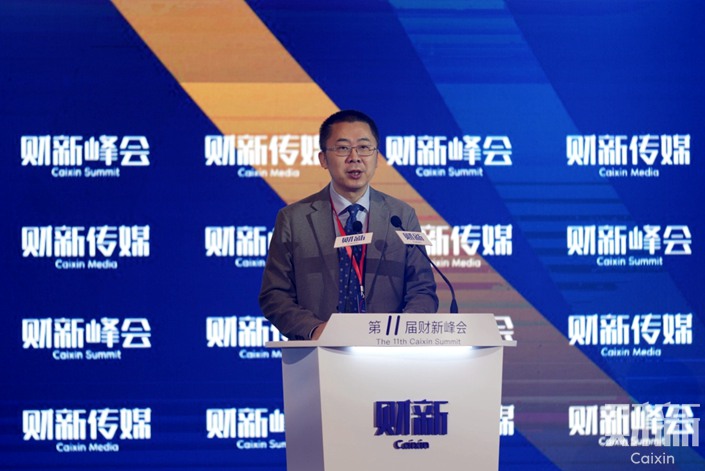Wang Shuo: What Is Trust and How to Rebuild It Globally

Wang Shuo is editor-in-chief of Caixin Media and Caixin Weekly.
The theme of this year’s Caixin Summit is “Rebuilding Global Trust.” Nobody is an island as we all live in connection with each other. Connection leads to communication, and the essence of communication is exchange, which causes problems. In exchange, the give and take mostly happens in a span of time and space. You give it this time, and you will take it next time. But how can you guarantee a payoff? It remains ambiguous. However, people who hold mutual trust enjoy a better life and win in natural selection. People who don’t trust each other and manage on their own are weeded out.
Bats live deep in the dark caves of Bali and go out hunting every night. Some are lucky and return full of blood; some are unlucky and return on an empty stomach. If a bat is unlucky over several days, it will starve to death. Some bats have invented an exchange arrangement. The lucky bat vomits blood and feeds it to the unlucky bat. Everyone has their unlucky time. When someone has bad luck, it will receive help from the bat which it helped before. To be noticed, this is not an arrangement of all for one, and one for all, but a mutual assistance between two specific parties. Only those who have experienced mutual help continue to help each other.
Exchange creates trust and trust supports further exchange. Bats then have a greater chance of living and passing on their genes. This rule is true for bats, and also applies to humans. Trust means that you believe your give this time will bring your gain next time. The trust lies in a rational expectation for a sustainable exchange across time and space. The trust has been rooted in our genes over countless years of evolution, and it has been internalized into inner beliefs in the upbringing of generations.
Trust is first expressed as belief, which exists in the word “believe.” Believe is very subjective, and always connects with emotions. Emotion strengthens trust, and once the trust is betrayed, emotion often drives people to revenge. Trust is also rational because it is rooted in the rational expectation of sustainable exchange across time and space, and one expects that he will benefit from this long-term exchange relationship. For people, trust is not selfless, but based on rational calculation. In the past, present, and future, there are people who value the interests of others over their own. But they are just anomalies, and most of them have long been eliminated from the human gene pool. Humans are usually only willing to give everything for future generations and that’s why.
Since everyone expects to benefit from long-term relationships, where does that benefit come from? This means that trust can create a positive-sum game. In a long-term exchange relationship supported by trust, the two parties do not only share the cake, but also make the cake together to create additional benefits. Only by creating additional benefits can both parties profit, just as bats help each other to balance the risks brought to them by the uncertainty of the world.
Because the exchange both creates and divides the cake, trust degrades easily. There are always people who gain immediate benefits from abusing the trust of others. He perceives this round of exchange as the last exchange and takes all the cakes away. You pay this time, and next time he is gone. The game ends and trust disappears. If you let it go, trust will become a big prisoner’s dilemma for everyone, and the ending is doomed: just as everyone else’s, your optimal strategy is deception.
Maintaining trust is not a personal effort, it can only be a social effort. Individuals maintain trust, pay the cost themselves, and the benefits belong to the whole society ― this is not worthwhile to do. Some people do unworthy things, but they cannot be counted on for there are very few of them. This task belongs to society, and society has to do several things: first, maintain long-term exchange expectations so that benefits can be long-term; second, punish the person who betrays other’s trust or at least prevent him from profiting. Once he completes his arbitrage in one place, he will move to another place to continue. Otherwise, he will replicate himself like a cancer cell and others will follow suit.
Therefore, trust is always facing threats, and there is never a time when the world is at peace.
Translated by intern reporter Hou Xinle.
The views and opinions expressed in this opinion section are those of the authors and do not necessarily reflect the editorial positions of Caixin Media.
If you would like to write an opinion for Caixin Global, please send your ideas or finished opinions to our email: opinionen@caixin.com
Download our app to receive breaking news alerts and read the news on the go.

- GALLERY
- PODCAST
- MOST POPULAR




